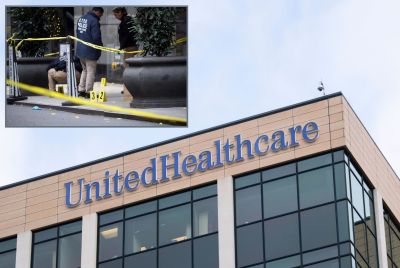Housing starts fall, permits offer ray of hope
Housing starts hit their lowest level in eight months in June, further evidence the economy lost momentum in the second quarter, but a rise in permits offered hope of a pick up in homebuilding.
The Commerce Department said on Tuesday housing starts dropped 5.0 percent to a seasonally adjusted annual rate of 549,000 units, the lowest since October. It was the second straight month of declines in groundbreaking activity and was well below market expectations for a 580,000-unit rate.
The data was the latest in a series of indicators to imply the United States' recovery from its longest and deepest recession since the 1930s took a step back in the second quarter, much earlier than economists had initially anticipated.
Housing is one of the areas of the economy that has helped deliver V-shaped recoveries in the past and with housing continuing to languish at very low levels, the V-shaped recovery is basically off the table, said Zach Pandl, an economist at Nomura Securities International in New York.
Analysts do not believe output is contracting, but acknowledge the risks of a double-dip recession have risen.
Stocks on Wall Street opened down as the report and below forecast earnings from corporate giants like Goldman Sachs (GS.N) soured investor sentiment.
Safe-haven U.S. government bonds rallied, with the yield on the two-year note dropping to a record low. The U.S. dollar rose against the euro, but hovered near seven month lows versus the yen.
BUILDING PERMITS RISE
Although housing starts fell last month, applications for building permits unexpectedly rose 2.1 percent to a 586,000-unit annual pace. That implied home construction activity could pick up in July, analysts said.
Building permits dropped 5.9 percent in May and markets had expected them to slip to a 570,000 rate in June.
The housing market was one of the key triggers of the economic downturn and its recovery has leant heavily on the government. Following the end of a tax credit for home buyers in April, home construction and sales have dropped sharply.
May's starts were revised down to show a 14.9 percent decline, previously reported as a 10.0 percent drop. Compared to June last year, starts were down 5.8 percent, the biggest decline since November.
Analysts said the housing starts were close to finding a bottom in the aftermath of the tax credit, citing a modest decline in single family starts last month.
Groundbreaking for single-family homes slipped 0.7 percent to an annual rate of 454,000 units, the lowest since May 2009. Starts for the volatile multifamily segment tumbled 21.5 percent to a 95,000-unit annual pace, erasing May's 4.3 percent rise.
The report suggests that the housing market is trying to find a bottom after the expiration of the homebuyer tax credit, said Michael Gapen, an economist at Barclays Capital in New York. We continue to expect housing starts to rebound in the second half of the year, albeit at a gradual pace.
Housing's share of economy has shrunk in recent years, with residential construction accounting for 2.4 percent of gross domestic product in the first quarter.
However, it has a had an out-sized impact on the economy through consumer spending and bank lending. When the housing market is healthy households feel wealthier and are inclined to spend, while banks profit on mortgage loans.
Last month, home completions surged a record 26.2 percent to an 886,000-unit pace, the highest level since December 2008. The inventory of houses under construction dropped 5.5 percent to a record low 450,000 units in June while units authorized but not yet started rose 3.6 percent to 91,500.
Analysts are concerned high unemployment and a flood of foreclosed properties will continue to hobble new home construction.
With high unemployment and tight credit likely to keep demand subdued and more foreclosures set to add to the already high number of unsold homes, homebuilding activity is going to remain weak for a long time, said Paul Dales, a U.S. economist at Capital Economics in Toronto.





















